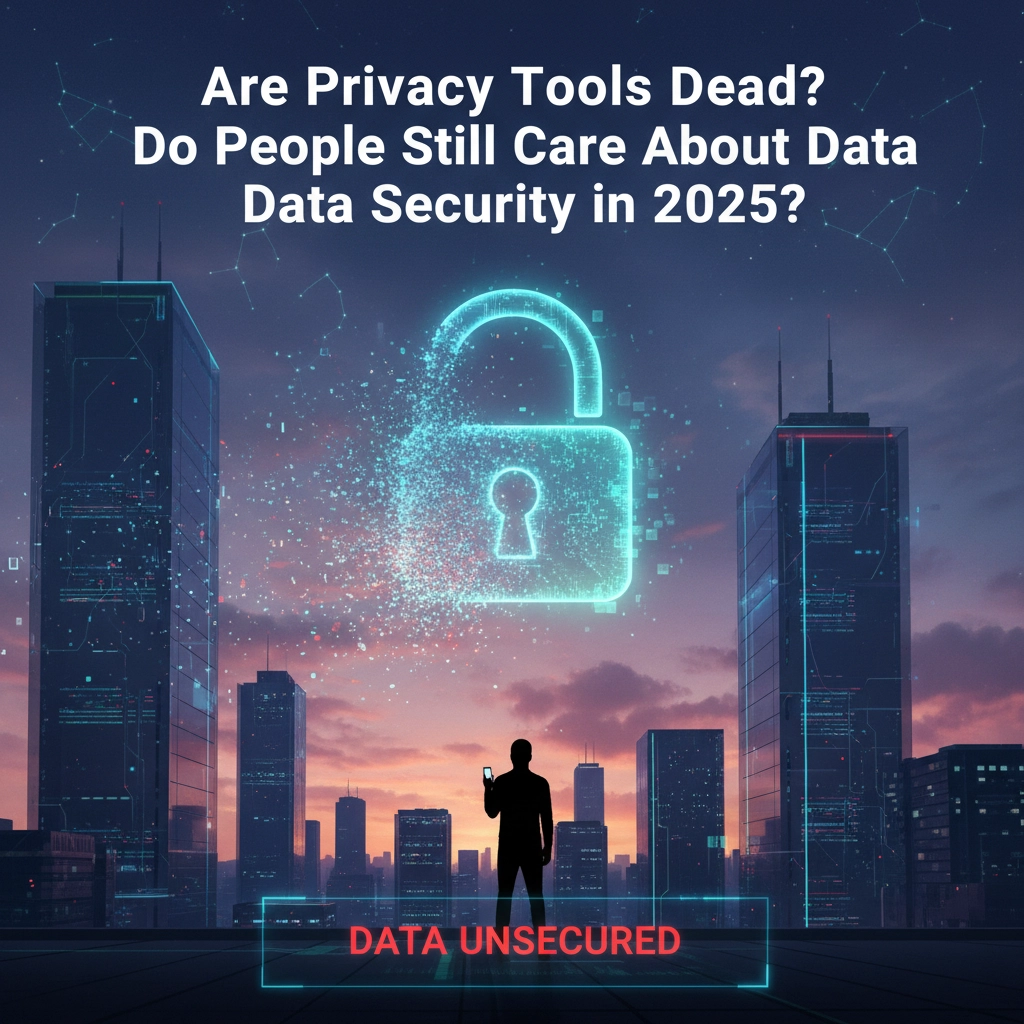Here's a wild stat that'll blow your mind: while 92% of Americans are worried sick about their online privacy, only 3% actually understand how privacy laws work. That's like being terrified of sharks but not knowing what an ocean is.
So are privacy tools dead? Not even close. They're having the biggest comeback since vinyl records.
The Numbers Don't Lie – Privacy is Booming
The privacy industry isn't just alive: it's absolutely crushing it. We're talking about a market that's expected to explode from $5.37 billion this year to $45.13 billion by 2032. That's a 35.5% growth rate that would make crypto bros jealous.
Companies aren't just throwing money at this stuff for fun either. Global security spending is hitting $212 billion in 2025, up 15% from last year. And here's the kicker: 95% of organizations say the benefits of privacy investments actually exceed the costs. When's the last time you heard 95% of businesses agree on anything?

More than 60% of large companies are rolling out Privacy-Enhancing Technologies by the end of this year. Even small businesses are jumping on board, with consent management platforms growing at 10.6% in the SMB sector. These aren't vanity metrics: this is real money flowing into real solutions.
Why Everyone's Still Freaking Out About Their Data
Remember when your biggest privacy worry was your mom finding your browser history? Those were simpler times.
Now we've got AI systems that can predict what you'll buy before you even know you want it. We've got data breaches happening left and right: 1,732 publicly disclosed breaches in just the first half of 2025. That's more than 9 breaches every single day.
But here's what's really driving people nuts:
• AI is everywhere: Your data isn't just sitting in some database anymore: it's being fed into AI models that learn from your behavior patterns
• Cross-border data sharing: New Department of Justice rules are completely changing how your data can move between countries
• Smart contracts: Your consent preferences can now be coded into blockchain systems that automatically execute based on your privacy choices
• Identity decentralization: Instead of companies owning your data, you're starting to control your own digital identity
Last month, my friend Sarah got a notification that her data was involved in three separate breaches: from her gym, her grocery store's app, and some random marketing company she'd never heard of. She spent her entire weekend updating passwords and checking her credit reports. Sound familiar?

The scary part isn't just that breaches are happening more often. It's that they're getting more sophisticated. We're dealing with AI-powered attacks, prompt injection vulnerabilities, and misconfigured systems that can expose massive amounts of personal info without anyone noticing for months.
The New Privacy Landscape is Getting Wild
2025 isn't your typical privacy year. Eight US states are implementing new privacy laws, with three more joining the party in 2026. Australia's working on social media age verification rules. The UK is pushing through new data access legislation.
This isn't just regulatory theater: it's a complete shift in how data flows around the world. Companies can't just slap a cookie banner on their website and call it a day anymore.
The really interesting stuff is happening with decentralized identity models. Instead of Facebook or Google controlling your digital identity, blockchain technology is letting you own and control your credentials directly. Think of it like having a digital wallet for your personal information that only you can unlock.

Web3.0 is turning consent from boring legal text into executable code. Your privacy preferences travel with your data through smart contracts. It's like having a personal bodyguard for your information that follows it wherever it goes.
But here's the twist: while all this fancy tech is being developed, most people still can't figure out basic privacy settings on their phones. We've got this massive gap between what's available and what people actually understand.
What This Means for Regular People
Look, you don't need to become a privacy expert to protect yourself. But ignoring this stuff isn't really an option anymore either.
The good news? Privacy tools are getting better and easier to use. Companies are finally realizing that user-friendly privacy controls aren't just nice to have: they're essential for staying competitive. When customers have real choices about their data, they stick around longer and trust brands more.
The bad news? The threats are getting more creative too. Ransomware attacks are targeting personal data alongside business systems. AI-powered phishing attempts are getting scary good at mimicking people you actually know.
But here's what gives me hope: people are fighting back. Data subject requests (where you can ask companies to delete or share your data) are skyrocketing. People aren't just complaining about privacy on social media anymore: they're taking action.

Consumer expectations are driving real change. When people demand transparency about how their data gets used, stored, and shared, businesses listen. Why? Because strong privacy practices actually improve customer retention and build long-term value.
The privacy revolution isn't happening in Silicon Valley boardrooms: it's happening every time someone chooses a privacy-focused search engine, enables two-factor authentication, or actually reads those privacy policy updates before clicking "accept."
Privacy tools aren't dead: they're evolving faster than ever to meet threats that didn't even exist five years ago. People absolutely still care about data security, even if they're not always sure how to protect themselves effectively.
The real question isn't whether privacy matters in 2025: it's whether we can build tools that actually work for regular people, not just tech experts. What's your biggest privacy concern right now, and what would it take for you to feel truly secure online?







